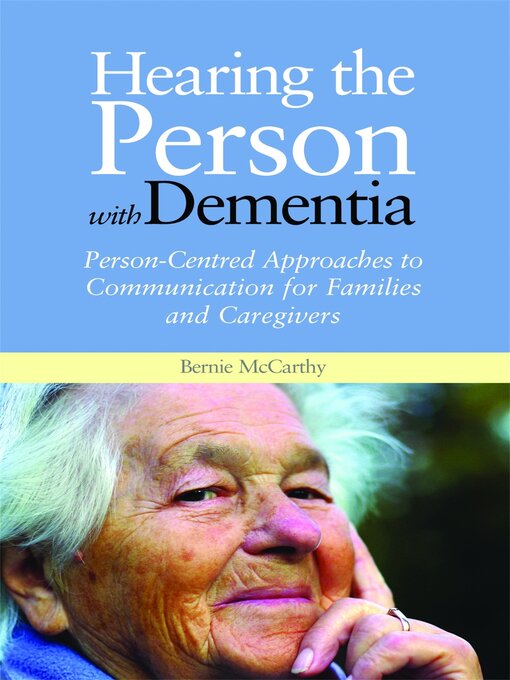Losing the ability to communicate can be a frustrating and difficult experience for people with dementia, their families and carers. As the disease progresses, the person with dementia may find it increasingly difficult to express themselves clearly, and to understand what others say.
Written with both family and professional carers in mind, this book clearly explains what happens to communication as dementia progresses, how this may affect an individual's memory, language and senses, and how carers might need to adapt their approach as a result. Advocating a person-centred approach to dementia care, the author describes methods of verbal and non-verbal communication, techniques for communicating with people who can not speak or move easily, and strategies for communicating more effectively in specific day-to-day situations, including at mealtimes, whilst helping the person with dementia to bathe or dress, and whilst out and about. Exercises at the end of each chapter encourage the carer to reflect on their learning and apply it to their own circumstances, and guidelines for creating a life story with the person with dementia as a means of promoting good communication are also included.
This concise, practical book is essential reading for family caregivers, professional care staff, and all those who work with, or who are training to work with, people with dementia.
- Lived experience of Dementia
- Lewy body dementias
- Frontotemporal Dementia
- Younger Onset Dementia
- LGBTI and dementia
- Eating and drinking well
- Activities and Engagement
- Culture, Religion and Spirituality
- End of Life and Palliative Care
- Younger Readers
- See all living with dementia collections
- Caregiving : Support and Guidance
- About Dementia
- Early Stage Dementia
- Communication
- Changes in behaviour
- Grief and Loss
- Relationships, Intimacy & Sexuality
- Residential Care
- See all caregiving collections
- Dementia Care Practice
- Person-Centred Care
- About Dementia
- Dementia Care Therapies
- Pain and Dementia
- Exercise
- Leadership and organisational change
- Elderhood
- Changes in behaviour
- See all healthcare professionals collections
- Dementia Australia resources
- Audiobooks
- Australian content
- Memoir
- Fiction
- Brain health
- Worried About Your Memory?
- Reminiscence and life story work
- Exercise
- Mindfulness & meditation
- Self-care & Wellbeing
- See all featured collections collections
